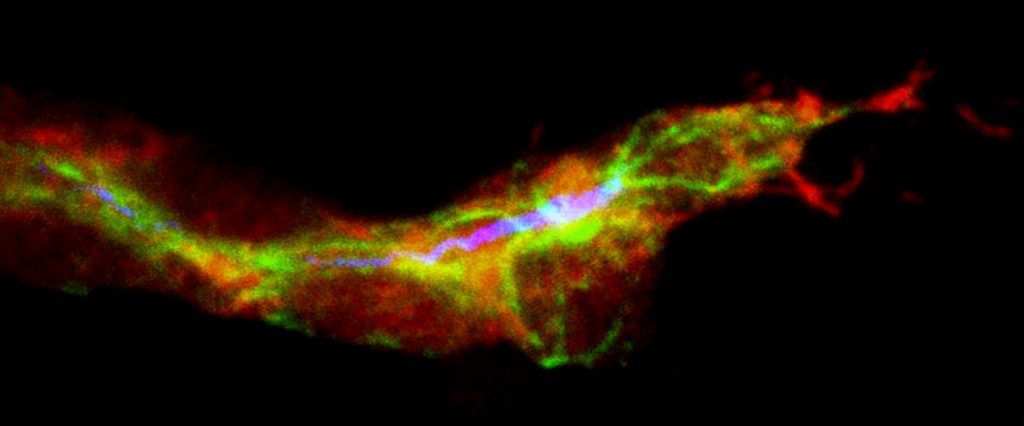A new study has revealed how stem cells work to improve lung function in acute respiratory distress syndrome (ARDS). Previous studies have shown that stem cells can reduce lung inflammation and restore some function in ARDS, but experts are not sure how this occurs. The new study, which was presented at the European Respiratory Society’s International Congress today (09 September 2014), brings us a step closer to understanding the mechanisms that occur within an injured lung.
Dr Anna Krasnodembskaya, lead author of the study from the Queens University Belfast
ARDS is a life-threatening condition in which the efficiency of the lungs is severely reduced. It is caused by damage to the capillary wall either from illness or a physical injury, such as major trauma. ARDS is characterised by excessive and dysregulated inflammation in the lung and patients require mechanical ventilation in order to breathe.
Although inflammation is usually a method by which the body heals and copes with an infection, when the inflammation is dysregulated it can lead to severe damage. Immune cells known as macrophages can coordinate the inflammatory response by driving or suppressing inflammation, depending on the stimulation.
The researchers investigated whether stem cells can affect the stimulation of the macrophages and promote the state in which they will suppress the inflammation.
They tested this in an animal model using human bone marrow-derived stem cells. Mice were infected with live bacteria to induce acute pneumonia and model the condition of ARDS. The results showed that treatment with stem cells led to significant reductions in lung injury, inflammation and improved bacterial clearance. Importantly, when stem cells were given to animals that had their macrophages artificially removed, the protective effect was gone. This suggests that the macrophages are an important part of the beneficial effects of stem cells seen in this model of ARDS.
These results were further supported by experiments where stem cells were applied to human macrophages in samples of fluid taken from lungs of patients with ARDS. Again, the stem cells were able to promote the anti-inflammatory state in the human macrophage cells. The authors have identified several proteins, secreted by the stem cells, that would be responsible for this effect.
Dr Anna Krasnodembskaya, lead author of the study from the Queens University Belfast, said: “This is the first study to our knowledge that has looked at how stem cells can change the functional properties of the macrophages in both humans and a mouse model. The findings highlight the advantages of stem cell treatment, as they can actively respond to the local micro-environment and exert multiple beneficial effects. We believe that clinical trials are now needed to test whether this can be an effective treatment for people suffering from ARDS.”
Story Source:
The above story is based on materials provided by European Lung Foundation.





